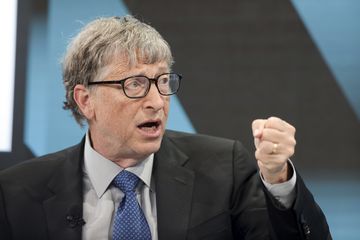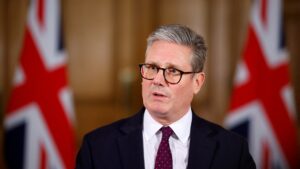
American billionaire Bill Gates said on Saturday he was “optimistic” about the battle against COVID-19 and called for medicines and vaccines to be distributed to those who need them rather than to the “highest bidders”.
Gates’ foundation pledged $7.4 billion to global vaccines alliance Gavi in June to help immunization programmes disrupted by coronavirus.
“If we just let drugs and vaccines go to the highest bidders, instead to the people in the place where they are most needed, we will have a longer and more unjust, deadlier pandemic,” said the Microsoft founder in Saturday’s video message to a virtual international conference on COVID-19 and AIDS.
“We need leaders to make these hard decisions about distributing based on equity, not just on market-driven factors.”
Gates stressed that the pandemic has interrupted the supply chains of drugs, including against AIDS, which risks disruptions which “could prevent hundreds of thousands of people from getting the treatments they need – and not just in sub-Saharan Africa.”
“But I remain optimistic,” he added. “We will defeat COVID-19 and we will continue to make strides against AIDS and other health crisis.”
He said the researchers are making great advances.
“Better diagnostic tools are being developed to identify those infected. Investments are being made in libraries of anti-viral drugs which has been an under-invested branch of science.
“Also, we are making great progress on vaccines,” he said.
“These platforms won’t just be useful against this particular virus. They will also help us specifically for HIV.
“Of course, there is a big difference between getting a platform and making sure we get the products out to everyone who needs them.”
The second reason for his optimism, he added, is the global solidarity, already demonstrated in the fight against AIDS, with the Global Fund created in 2002, and the American aid programme PEPFAR, launched by George W Bush and intended mainly for sub-Saharan Africa.
“Whether it is AIDS or COVID-19, global cooperation and resolve to invent the tools and get them out where they are needed most is critical,” he said.
(AFP)






